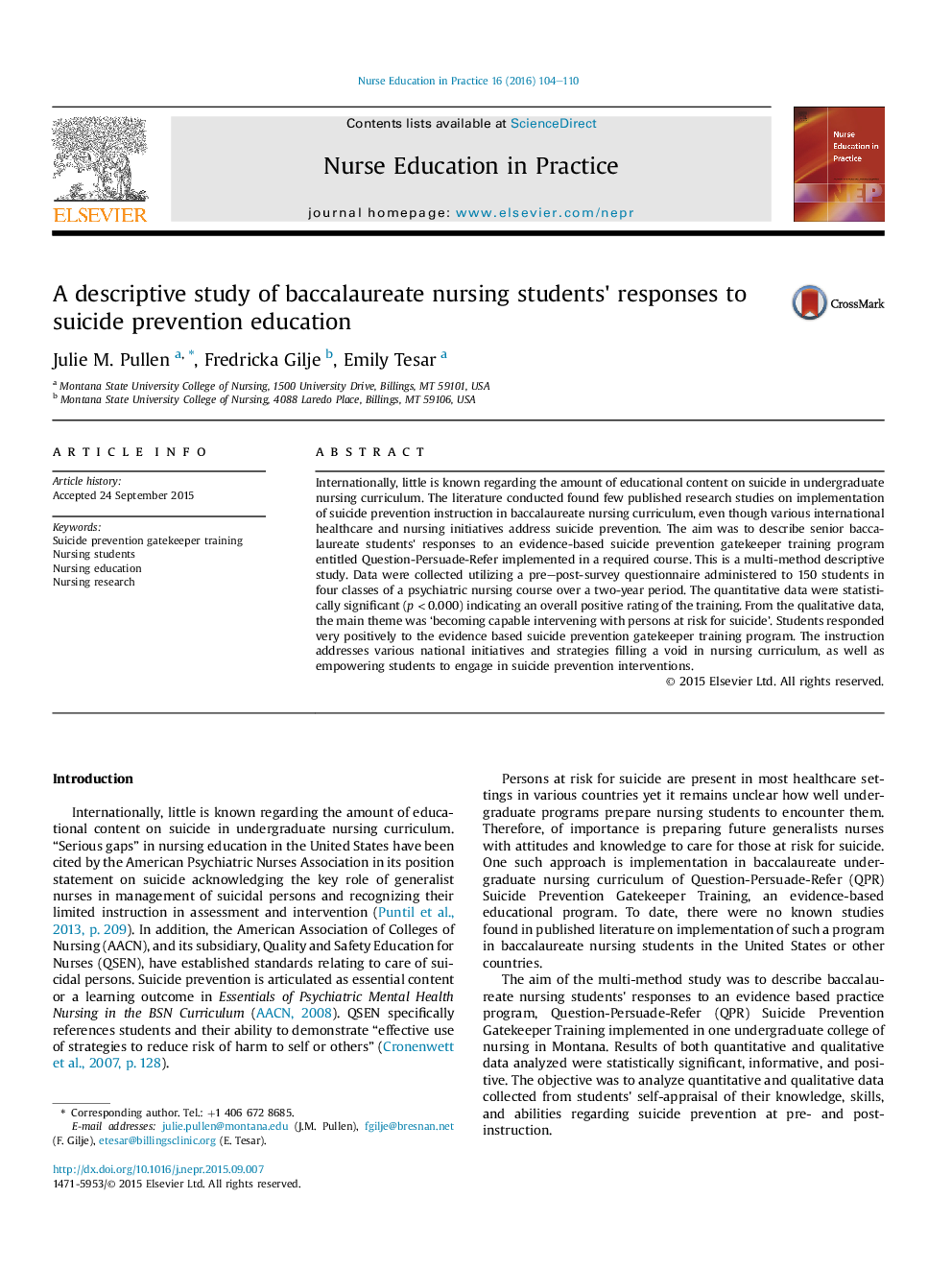| Article ID | Journal | Published Year | Pages | File Type |
|---|---|---|---|---|
| 366811 | Nurse Education in Practice | 2016 | 7 Pages |
•Deficits in suicide prevention education in undergraduate nursing have been cited.•Literature on suicide prevention education in undergraduate nursing is sparse.•Nursing students responded very positively to suicide prevention gatekeeper training.•A theme ‘Becoming capable intervening with persons at risk for suicide’ emerged.•This nascent study addresses international healthcare and education initiatives.
Internationally, little is known regarding the amount of educational content on suicide in undergraduate nursing curriculum. The literature conducted found few published research studies on implementation of suicide prevention instruction in baccalaureate nursing curriculum, even though various international healthcare and nursing initiatives address suicide prevention. The aim was to describe senior baccalaureate students' responses to an evidence-based suicide prevention gatekeeper training program entitled Question-Persuade-Refer implemented in a required course. This is a multi-method descriptive study. Data were collected utilizing a pre–post-survey questionnaire administered to 150 students in four classes of a psychiatric nursing course over a two-year period. The quantitative data were statistically significant (p < 0.000) indicating an overall positive rating of the training. From the qualitative data, the main theme was ‘becoming capable intervening with persons at risk for suicide’. Students responded very positively to the evidence based suicide prevention gatekeeper training program. The instruction addresses various national initiatives and strategies filling a void in nursing curriculum, as well as empowering students to engage in suicide prevention interventions.
